Inter-Country Seminar on the Further Development of the Education/Training Continuum Theme
About the conference
The Inter-Country Quality Node for Technical and Vocational Skills Development (ICQN/TVSD) in Africa is jointly coordinated by the Côte d’Ivoire Ministry of Education, Technical Education and Vocational Training (represented by the Office of the Minister of State for Technical Education and Vocational Training) and the Association for the Development of Education in Africa (ADEA). It’s objective is to pool the experiences of African countries in order to improve young people’s vocational skills and qualifications and thus to facilitate their access to employment.
The ministerial conference held in Abidjan July 2014 agreed the work programme for the ICQN/TVSD until 2017. In accordance with this programme, the ICQN/TVSD worked on the “Training of trainers and entrepreneurs” theme in 2015 (ministerial conference in Kigali) and on the “Education/training continuum” the mein 2016 (experts seminar in Abidjan). The results of this work is available in the form of two compendiums of country experiences published in French and English on the ADEA website.
Following the conclusions of the experts seminar on the education/training continuum held in Abidjan on 7 and 8 November 2016, it was decided that the ICQN’s activities in 2017 would continue to focus on this theme and that each country participating in the seminar would be asked to provide further information on one of the continuum schemes they have decided to implement.
The themes
Continuum themes and schemes to be further developed in 2017
Five thematic areas where country experiences could be further developed in the form of schemes integrated within the education and training system were identified at the expert seminar, further to cross-analysis of the country reports.
- Theme 1: Basic education scheme in which it is possible to acquire basic knowledge as well as social and vocational skills
- Theme 2: Creation of pathways, at the end of EFA, to skills training schemes
- Theme 3: Design and implementation of formal and informal remediation schemes allowing students to acquire a solid core of knowledge and basic skills after they have left school early
- Theme 4: Reformed apprenticeships which both consolidate educational achievements of those leaving basic education and lead to a recognised professional level
- Theme 5: A mixed education/training curriculum at lower and upper secondary school
Following the seminar, the participating countries were asked to identify a specific continuum scheme they would have to describe and analyse in 2017. The responses received have made it possible to identify the scheme chosen for each country.
Working methods
The work to be done by the country experts in 2017 differs from the work in previous years. The experts are no longer being asked to write a new country report on the continuum topic. Each of them will be invited to describe, according to a common presentation, analysis and evaluation model, the scheme their country has chosen to promote. They shall provide information on how it is implemented, the beneficiaries, the results achieved, the resources made available and ultimately the decisions taken by national education and training authorities to develop and disseminate it as widely as possible with a view to using it in order to shape a national policy.
The work of the ICQN/TVSD in 2017 will be organised into three phases.
Phase 1: announcement of the 2017 activities 2017 to the ICQN/TVSD member countries
Ministers of the 15 countries who participated in the 2016 activities will be informed about the forthcoming work on the education/training continuum in 2017. Each minister will be asked to confirm the appointment of the expert who wrote the 2016 country report or, if this is not possible, to appoint a new expert to continue the work started. A big effort will be made to make funds available in order to invite two or three additional countries to participate in the work in 2017.
The Terms of Reference (ToR) outlining the nature and schedule of activities as well as the ICQN/TVSD’s financial support will be enclosed with the letter to ministers.
Phase 2: production of preparatory working papers for the Abidjan meeting
- By the ICQN/TVSD experts: the draft letter to the ministers, the ToR for the 2017 activities, common structure for presenting the “country scheme”, the summary presentation of the “country schemes”, the concluding document on the continuum schemes that should be further developed and promoted, the joint agenda of the experts seminar and the ministerial conference;
- By the country experts: the description of the scheme chosen according to the common description, analysis and evaluation model.
Phase 3: production of documents after the Abidjan meeting
- By the participants in the events: an “Abidjan Declaration”, with recommendations for future work on the continuum and, depending on the outlook for the ICQN/TVSD’s future work, the 2018-2021 work programme.
- By the ICQN/TVSD experts: the compendium of country of education/training continuum schemes.
It will be important for the organisers to ensure all participants have a copy of the compendiums produced after the Kigali (2015) and Abidjan (2016) meetings, either in electronic or in printed format.
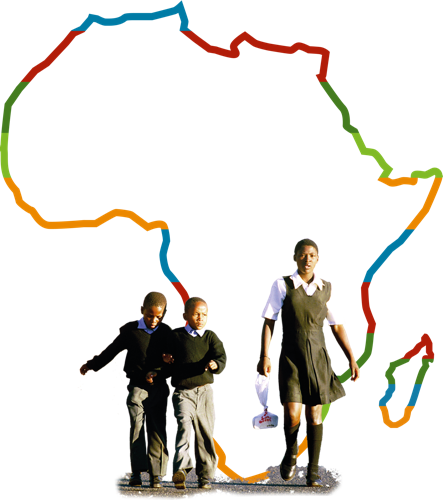
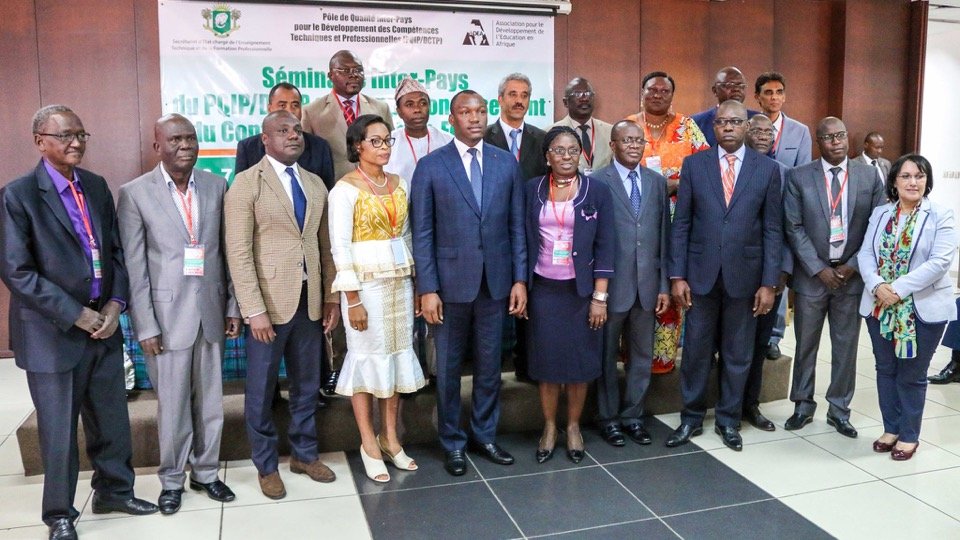
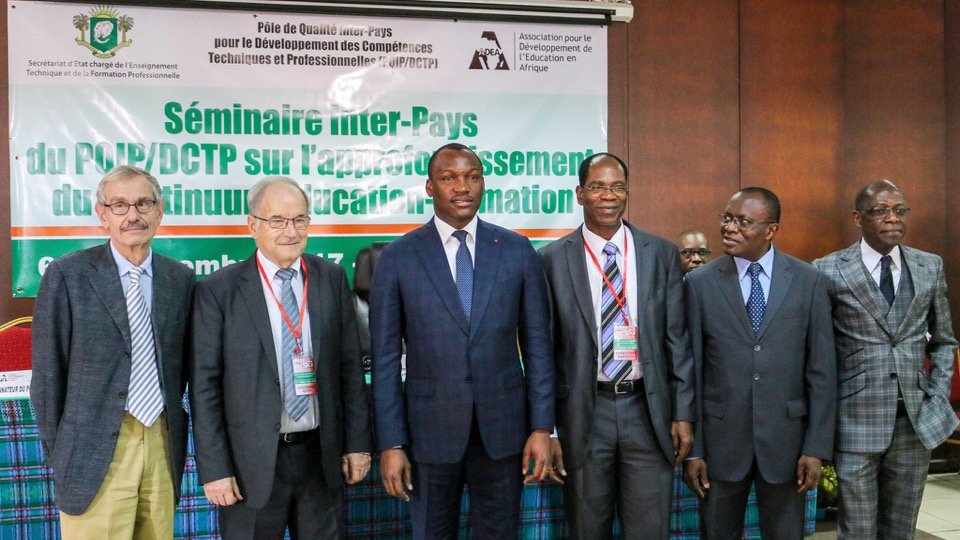
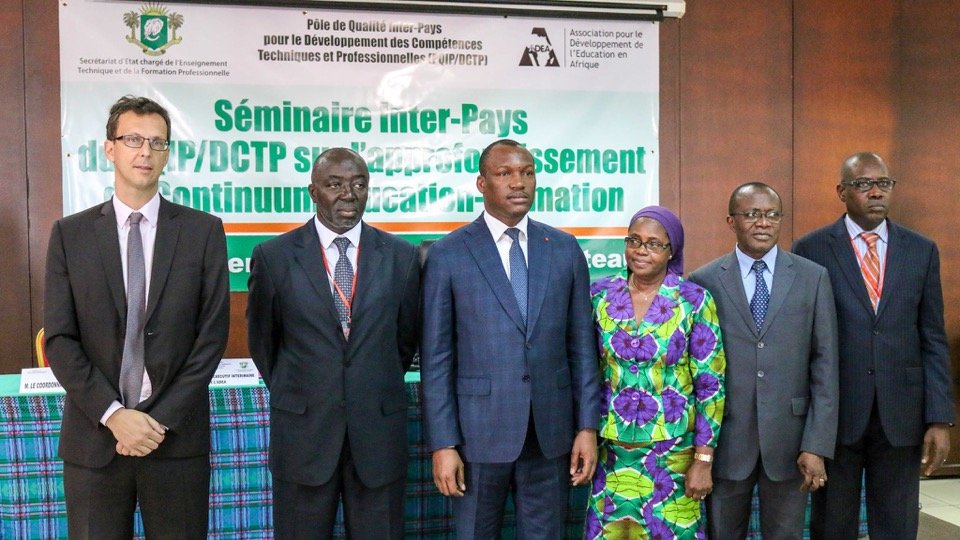
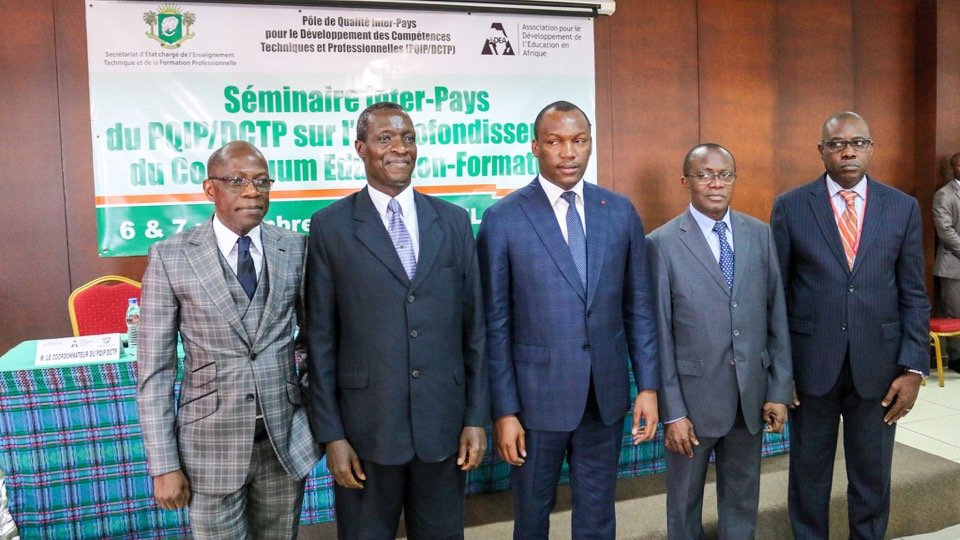
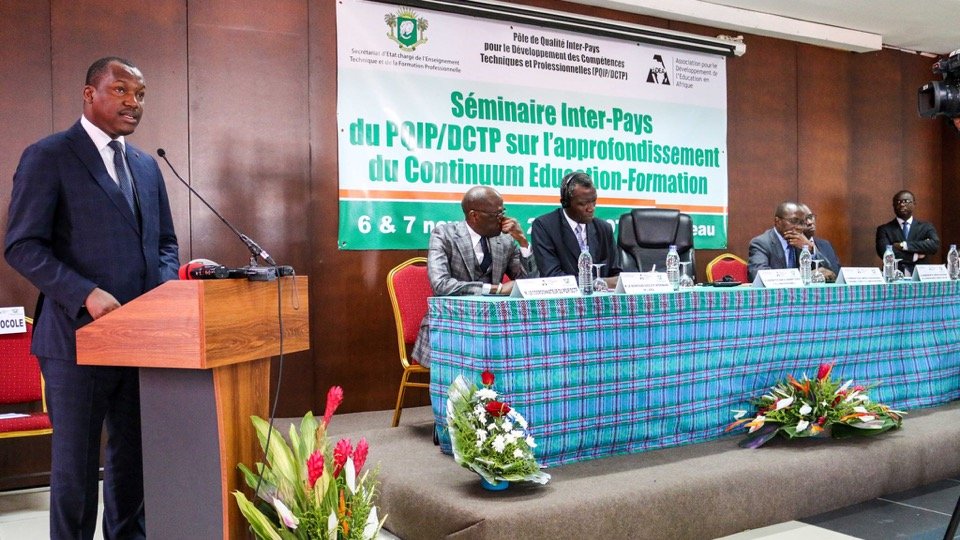
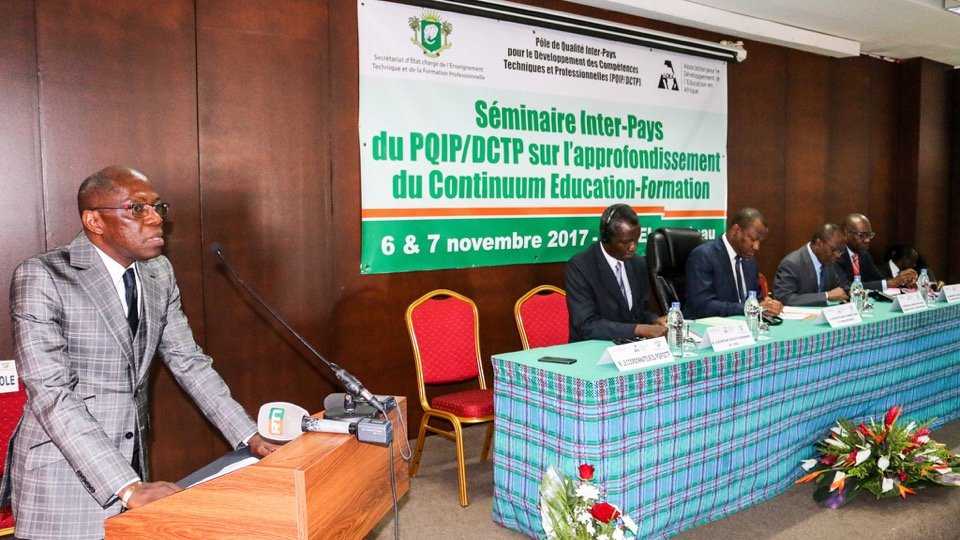
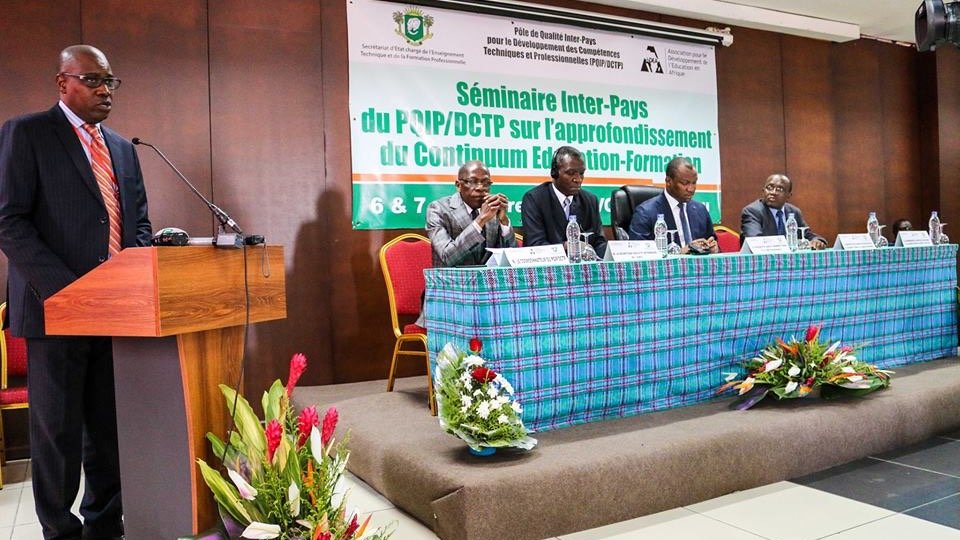
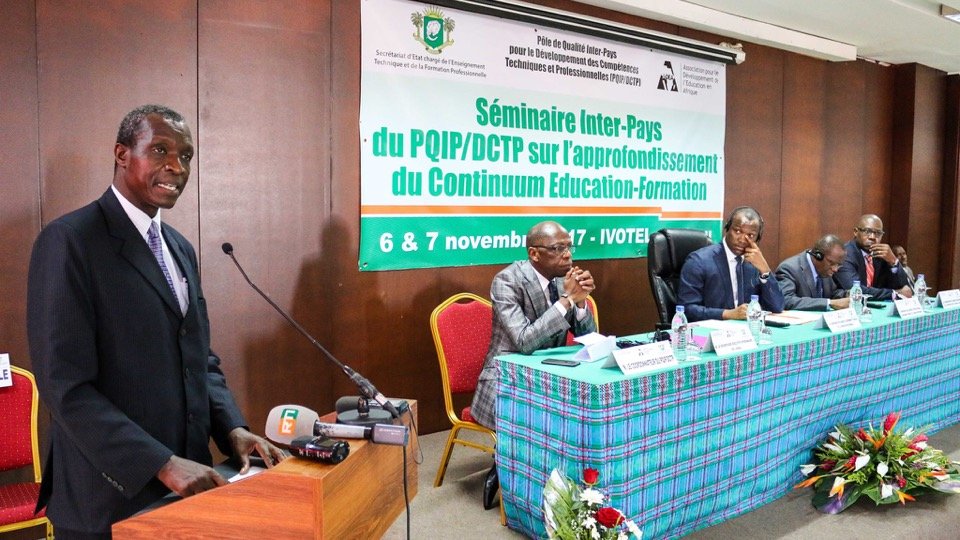
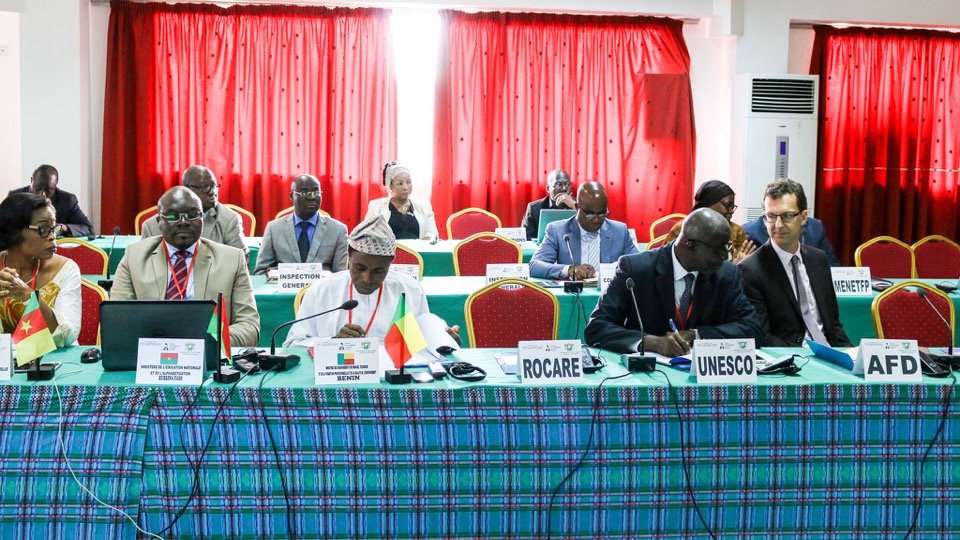
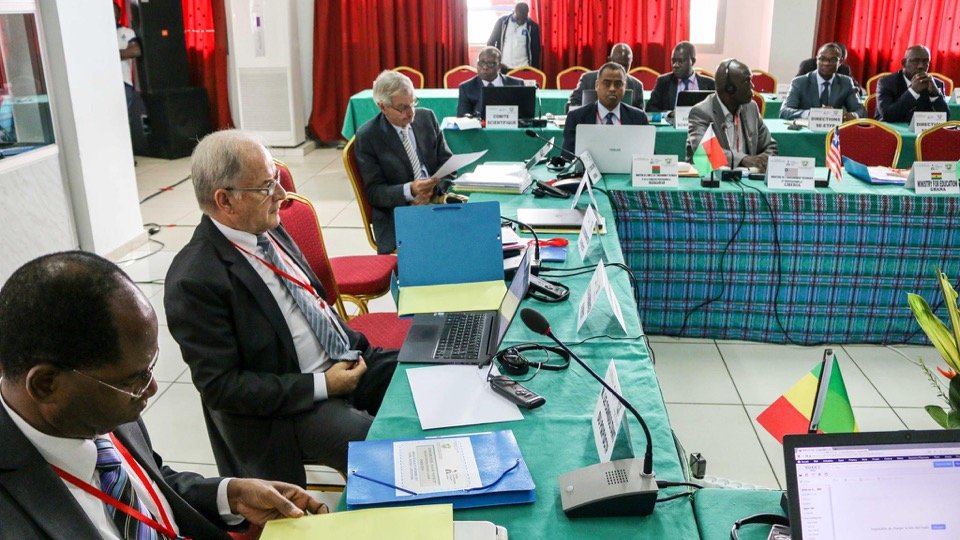
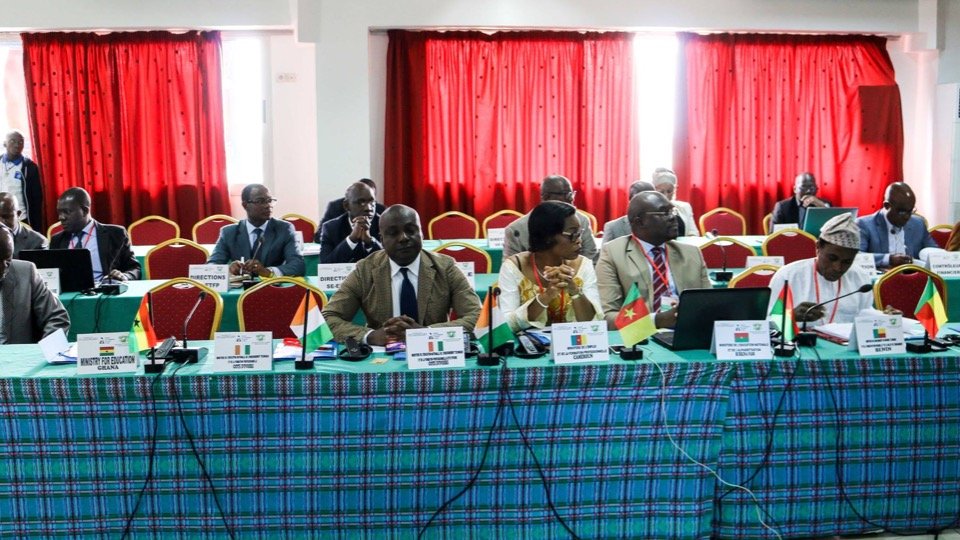
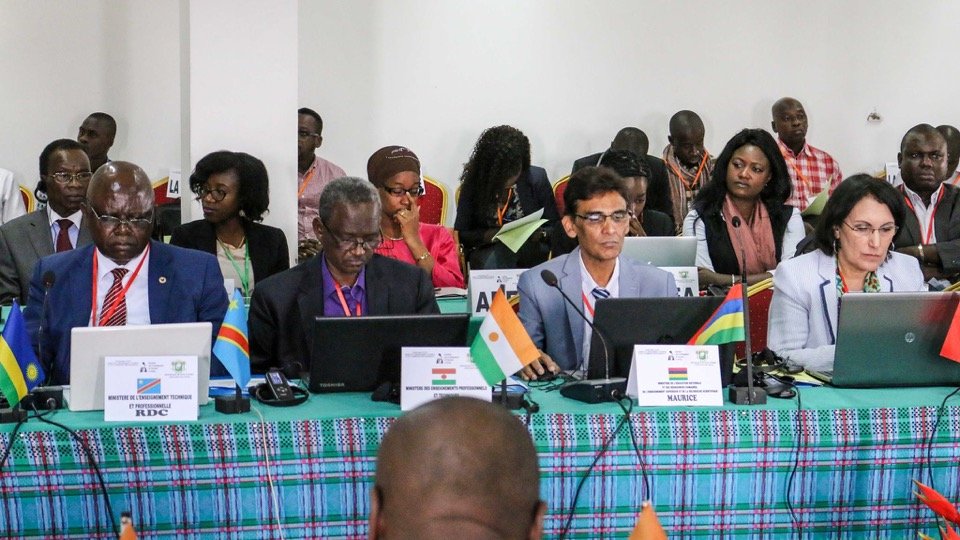
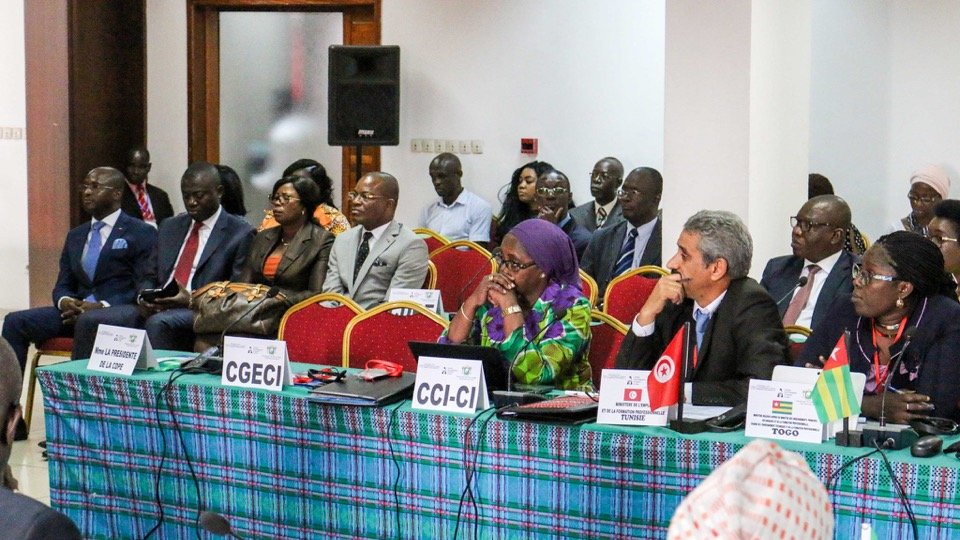
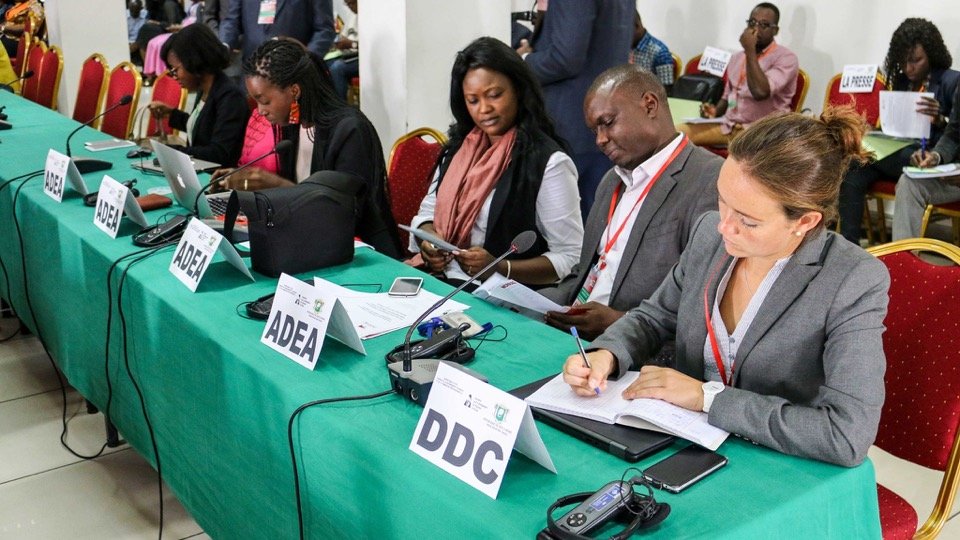
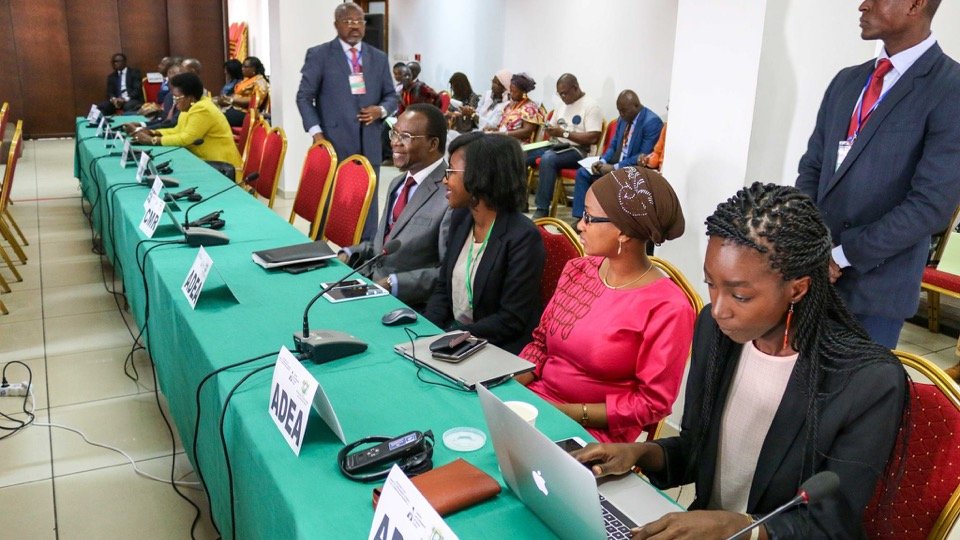
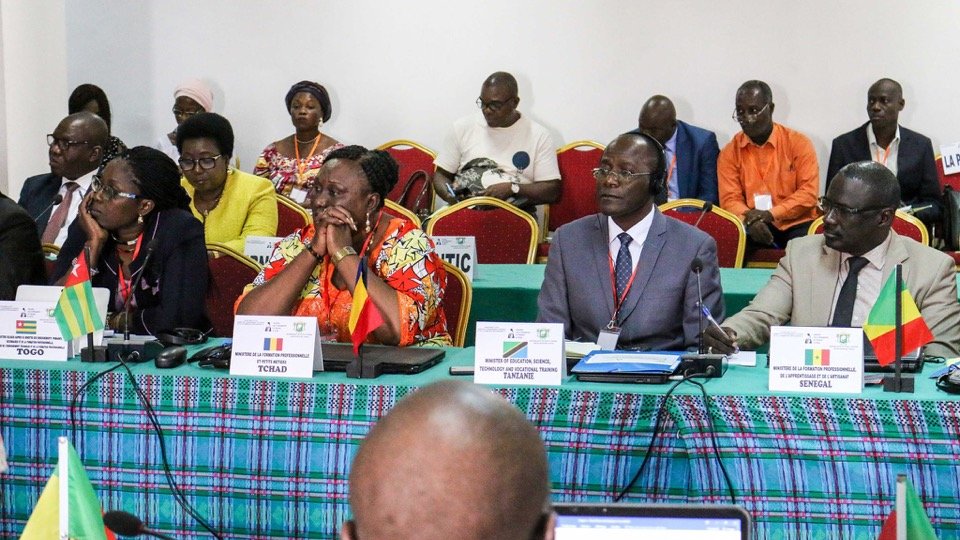
 Angola
Angola Benin
Benin Burkina Faso
Burkina Faso Burundi
Burundi Cameroon
Cameroon Cape Verde
Cape Verde Chad
Chad Congo
Congo Congo DRC
Congo DRC Côte d’Ivoire
Côte d’Ivoire Gabon
Gabon Ghana
Ghana Guinea-Bissau
Guinea-Bissau Kenya
Kenya Liberia
Liberia Madagascar
Madagascar Mali
Mali Mauritius
Mauritius Morocco
Morocco Mozambique
Mozambique Niger
Niger Rwanda
Rwanda Senegal
Senegal Tanzania
Tanzania Togo
Togo Tunisia
Tunisia South Africa
South Africa ADEA's ICQN-TVSD is hosted by the Secretary of State in Charge of Technical Education and Vocational Training, Côte d'Ivoire
ADEA's ICQN-TVSD is hosted by the Secretary of State in Charge of Technical Education and Vocational Training, Côte d'Ivoire